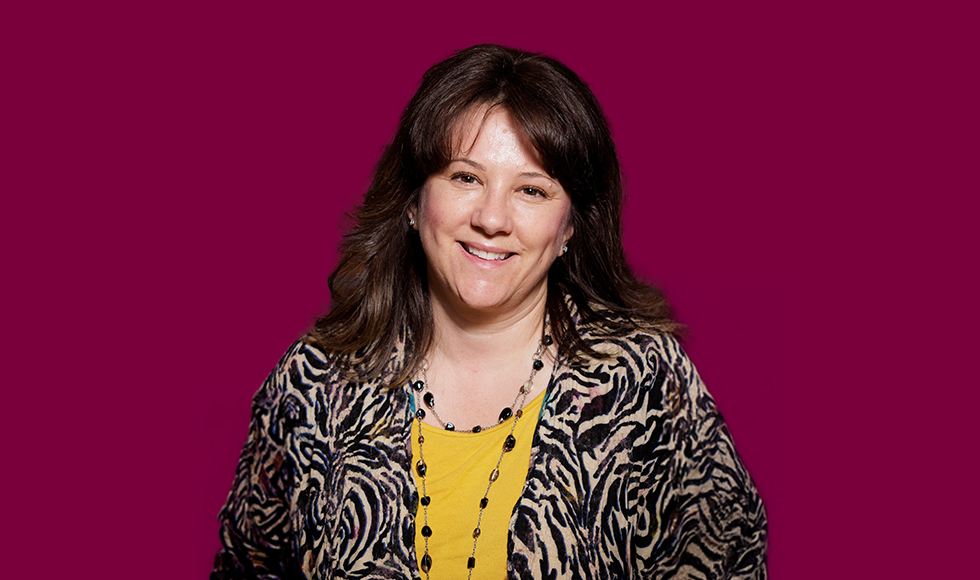Why McMaster Donors Give: Natasha Estey

1999 McMaster graduate Natasha Estey’s studies and experiences at McMaster played a foundational role in the life she has built, and she is helping to ensure other students can benefit the same way.
Natasha Estey’s time as an anthropology student at McMaster profoundly influenced her life and the way she sees the world.
From inspiring a solo trip to Oceana, where she gained deep insights into other cultures, to shifting her perspective on gender and culture, Estey’s anthropology degree provided a new lens through which to explore and appreciate the human experience.
The recipient of a full scholarship, Estey approached her studies with dedication, embracing every chance to learn and grow.
“My scholarship was truly transformational for me. It covered my whole tuition, books, and some of my living costs too,” she says.
“I really leaned into the academic experience and took it really seriously.”
Estey who graduated in 1999, believes passionately in paying it forward to the next generation of students. For more than 20 years, she has generously supported McMaster students through student bursaries and scholarships in the department of Anthropology and the Faculty of Social Sciences.
“Receiving a scholarship helped me graduate without student debt. I want to contribute to that possibility for others.”
Outside the classroom, Estey immersed herself in campus life as a fitness instructor at the Pulse and a columnist for The Silhouette, where she shared student stories.
She cherishes the memories she made living on campus in Moulton Hall and Bates Residence.
“I had these wonderful opportunities to engage with the fulsome life of the school and that was really important,” she says. “I still have a core group of friends today that are from Mac.”
Estey fondly recalls a first-year anthropology course with Professor Matthew Cooper, who first inspired her to major in cultural anthropology.
“And then there was this amazing course with Dr. Rethmann,” she says, “the Anthropology of Gender — which helped me appreciate that so much of what we experience in the world are cultural constructs.”
And she was so inspired by her “Peoples of the Pacific” course with professor William Rodman that she travelled solo for four months to Oceana — from Samoa and New Zealand to Tonga and the Cook Islands.
“I fell in love with the people and the culture,” she says. “That experience was transformational in my life journey.”
When Estey heard the Anthropology department would be hosting a 50th anniversary celebration in September 2024, she jumped at the opportunity to reconnect with old professors and return to campus.
“I was really excited to see my first-year professor, Dr. Cooper, at the reunion,” she says. “I also really enjoyed touring the anthropology building, seeing the labs, and hearing about what the students are working on.”
Estey was particularly struck by the department’s growing collaboration with Indigenous communities and its focus on celebrating Indigenous artifacts, cultures, traditions and customs.
“I love seeing all the ways that’s happening — I think it’s absolutely integral,” she says.
Towards the end of her degree at McMaster, Estey had a growing interest in applied anthropology. “I was really fascinated by culture and subculture in my own backyard — particularly youth culture,” she says.
This passion led her to pursue a master’s degree in business and organizational anthropology, and ultimately to a 14-year career in enrolment management for K-12 education.
Today, she works at Montcrest School, a small independent school in Toronto for elementary students from junior kindergarten to grade 8.
“I use my observational skills, my ability to develop rapport with people, my empathy – all of these skills that come from an education in cultural anthropology,” she says.
Following the department anniversary celebration, Estey decided to become a monthly donor to the Anthropology bursary fund, supporting students with financial need.
“My time at Mac was very foundational,” she says. “I wanted to be able to recognize — in my small way — the impact Mac has had on me and how I still feel that connection.”
Estey wants others to know that a small donation can make a big difference.
“Often when people feel they don’t have a lot to give, they hesitate to give at all,” she says. “But every single dollar has an impact — especially for a small department. It’s more about participation than the number.”
Why McMaster donors give: At McMaster University, every single gift, no matter the size, has the potential to make a difference in the lives of our students, the quality of our research and our ability to give back to our community and influence the future. We asked some of our donors and their families what motivates them to give. Read their stories.


